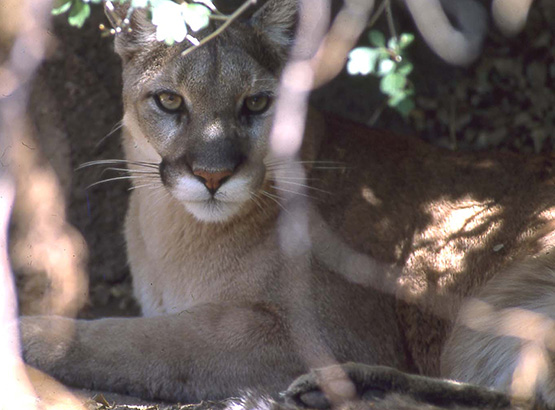Mountain Lion
The mountain lion occurs throughout the western hemisphere and has one of the most extensive ranges of any land mammal, from the Straights of Magellan in South America to the Canadian Yukon. In Arizona, mountain lions are widely distributed and are expanding into regions where they were once rare.

About
Mountain lions are stalk and ambush predators that hunt primarily at night and rely on ambush to kill their prey. They prefer to stalk from above, using rock ledges and steep terrain. Uneaten portions of a kill are hidden or covered with leaves, dirt or other debris. An entire deer can be consumed by an adult mountain lion in two nights. Males and females are highly territorial and often kill other mountain lions found in their territory.
Understanding Mountain Lion Management in Arizona — The facts about Arizona’s robust and expanding mountain lion population.
Video: Mountain Lions in Arizona
Life History
Mountain lions breed at any time of the year with the peak period for kitten births occurring in the summer. Litters average three kittens. Young remain with the mother for approximately 18 months learning the skills necessary to survive independently. Juvenile males tend to disperse much longer distances than juvenile females. Mountain lions are solitary animals with the exception of females with kittens or breeding pairs.
Deer, both whitetail and mule, are the primary prey for mountain lions in Arizona, although they will also prey on javelina, bighorn sheep, small mammals and livestock.

Our Mission
To conserve Arizona’s diverse wildlife resources and manage for safe, compatible outdoor recreation opportunities for current and future generations.
Hunt Regulations
Rules and regulations for hunting in Arizona.
Regulations for spring hunts, fall hunts and pronghorn, elk hunts.



